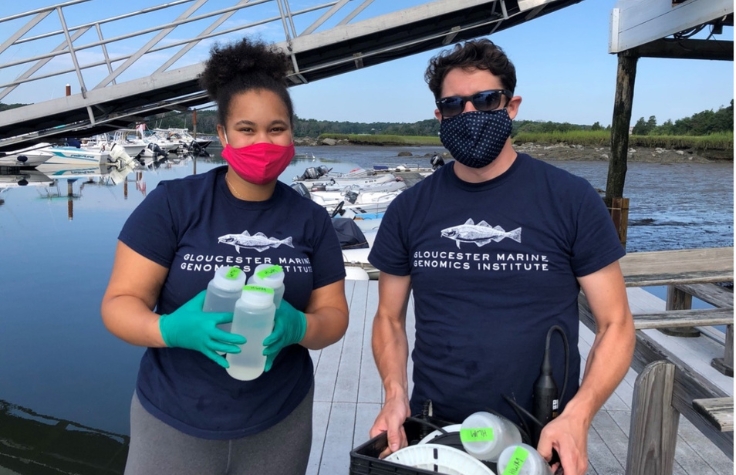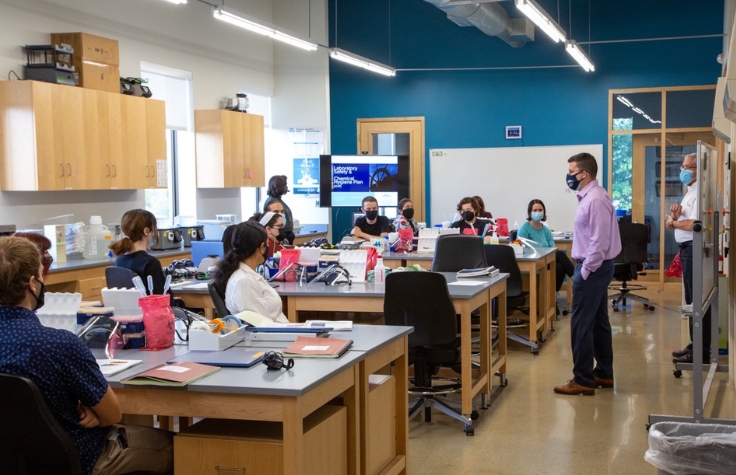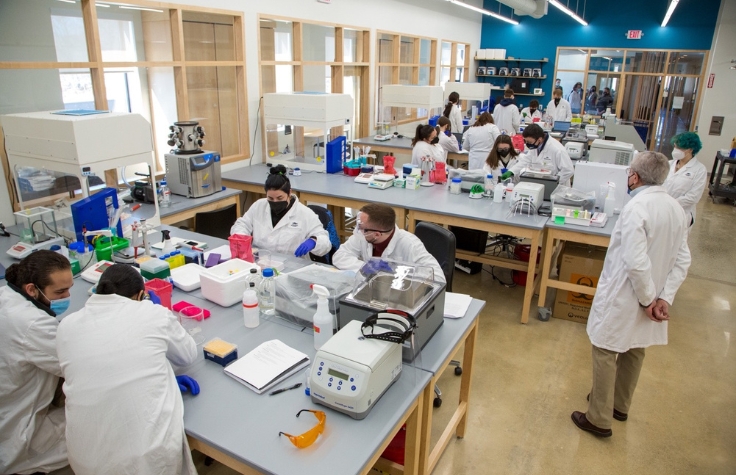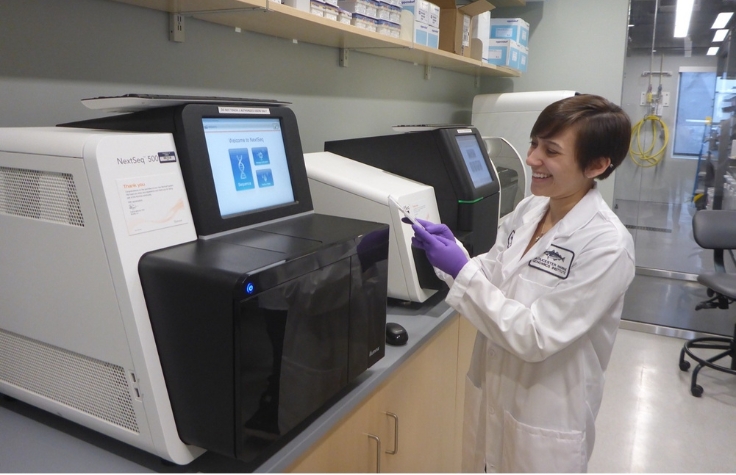
2022년 12월 19일
When Gloucester Marine Genomics Institute (GMGI) was founded in 2013, it already had an Illumina connection—it was created with help from Illumina co-founder David Walt. Now Illumina provides in-kind donations to support its mission.
Gloucester is one of several communities on Cape Ann, Massachusetts, north of Boston. The region had a thriving fishing industry for hundreds of years; unfortunately, when fishing fell on hard times, so did the community. GMGI was created to catalyze research, education, and economic growth, with the idea that “the ocean could be a new source of opportunities for human health, as well as stewarding the local waters,” says Executive Director Christine Bolzan. “It could also be a springboard for a new way of thinking about education in the life sciences.”

Genomic research and education
GMGI researches the unique adaptations of marine animals to better understand not only ocean systems, but also human health. Its Donald G. Comb Science Director, Andrea Bodnar, PhD, is studying the genetics that confer remarkable lifespans on sea urchins, which can sometimes live to 200 years old. By understanding the mechanisms that drive this longevity, Bodnar and her colleagues hope to find new ways to combat age-related diseases in humans.
The institute is also studying Atlantic cod (Gadus morhua) in the Gulf of Maine using low-coverage whole-genome sequencing of over 200 cod samples. Its scientists developed a panel of genetic variants that they use to assign individual fish to one of two seasonal spawning groups, which helps fisheries manage their numbers more sustainably.
GMGI was also the first to sequence the American lobster (Homarus americanus), an iconic and valuable species whose complex genomic data may have implications for research into cancer resistance, aging, and the effects of warming oceans due to climate change.
To advance education in the local community, GMGI created the Gloucester Biotechnology Academy (Academy), which offers seven months of hands-on training and a three-month paid biotech internship. In 2022, all tuition costs were covered by private donations, and 95% of Academy graduates have found life sciences jobs in the region or have gone on to enroll in a degree program in biology or chemistry.
“Gloucester High School has one of the lower college attendance rates in the state, and these are young people who, without this opportunity, might never gain access to the life science industry," says Bolzan.
Students become certified laboratory technicians and learn how to culture cells and sequence DNA. The program has recently added a state-of-the-art biomanufacturing learning space to meet the growing demand among Massachusetts biotech companies for entry-level talent. The class of 2023, which began training in August, increased the academy’s cohort from 20 to 42 students. It’s been so successful that GMGI is in early conversations to create a second Biotechnology Academy in Boston in 2024.
Students at the Academy receive intensive hands-on training from day one. “In 10 months, our students get more bench time than most people would get in a four-year biology degree,” says Education Director John Doyle, PhD. “They get an hour of lecture each day and the rest of the time is spent in the lab.”

To provide even more educational opportunities, GMGI is sponsoring outreach to high schools in Cape Ann and Boston. One program, called What the Heck is Biotech?, is a one-hour unit that gives students insights into the discipline and its associated educational and career pathways.
By building this pipeline of trained biotech professionals and marine genomic research expertise, GMGI hopes to attract companies to Cape Ann. Many Academy graduates relocate to Boston but would jump at the chance to remain in Gloucester.
“We’re trying to make Gloucester and Cape Ann more attractive to companies looking to expand and maybe not pay so much for lab and office space,” says Bolzan. “We have a trained workforce, leading marine genomic researchers, and one of the most beautiful working waterfronts in the country. Gloucester is a great place to do science.”

Connecting to consumables
GMGI researchers use a variety of Illumina sequencers in the lab, including the NextSeq 500 and the MiSeq. Illumina has supported the Academy program with a variety of reagents, library prep, and other consumables. Next-generation sequencing is a critical part of everything the institute does, from understanding and stewarding the ocean to educating young adults just out of high school.
Thanks to Illumina’s advances in sequencing technology, GMGI has the ability to sequence whole genomes in-house, making it one of only a few organizations dedicated solely to marine genomics research. “GMGI is unique among marine research institutes in that we not only have access to the marine environment here on Gloucester’s working waterfront, but we also have the tools and instruments we need to take the samples we collect from DNA extraction through to sequencing and data analysis on our bioinformatic server,” says Jennifer Polinski, Senior Research Associate.
At the Gloucester Biotechnology Academy, this hands-on approach is paying dividends in job readiness and continuing education. Some students have gone on to pursue undergraduate degrees and one is on track to enter a PhD program. For many, the rewards go well beyond a steady paycheck—they become part of a thriving ecosystem of scientists producing meaningful work.
“They’re looking for something more than just a job,” says Doyle. “One thing we’ve heard from students is that, for a lot of oncology research companies, everything starts with cell culture. They talk about how maybe their aunt passed away from cancer or one of their parents had cancer, and now they can have an impact in that area. For a student who was previously not on a pathway to college or a career, this is a big deal.”
Illumina values partnerships with organizations like GMGI in its efforts to inspire future leaders of the genome era. Learn more about how Illumina is empowering communities and working to bring equitable access to genomics to five million learners by 2030 here.


